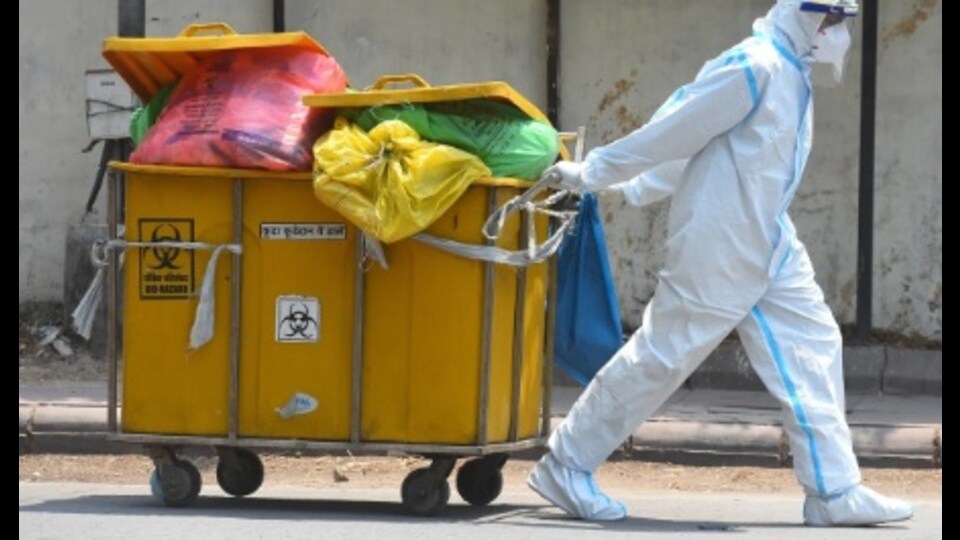‘Globally, 5.2 million people die every year due to diseases caused by med waste’

To highlight the importance of treating medical waste, Lucknow-based King George’s Medical University (KGMU) organised a workshop on “Sustainable Cutting-Edge Technology for Bio-Medical Waste & Infection Control” on Saturday.
Speaking at the workshop, held by KGMU’s Department of Microbiology and Hospital Infection Control Committee, Dr Sheetal Verma said, “Hospitals in developing countries produce an average of 2.5-to- 3 kilograms of bio-waste per bed per day.
“The outbreak of Covid-19 led to an increase in medical waste accumulation. During the pandemic, biomedical waste weighing 656 tonnes was generated daily across India.” She added, “It is estimated that more than 5.2 million people, including 4 million children, die as a result of diseases caused by medical waste throughout the world.”
The chief guest of the event, KGMU vice-chancellor Lieutenant General Dr Bipin Puri, raised the need to update guidelines on the disposal and treatment of medical waste. He said that staff members must work as a team to prevent infections in hospitals.
Meanwhile, Professor Amita Jain, head of the Microbiology department, in her inaugural address, emphasised the need for best practices of sterilisation and disinfection through the use of effective sterilisation and disinfectants.
She also highlighted the importance of biomedical waste disposal in preventing the transmission of infections, especially hospital-acquired infections.
Enjoying this article?
Subscribe to get more stories like this delivered to your inbox.
Besides, a hands-on workshop was also organised for laboratory effluent treatment plants, mobile medical microwave technology for infection control, and microwave-based techniques for surface and air disinfection.
For any query with respect to this article or any other content requirement, please contact Editor at [email protected] Digital streams Ltd
Read More News:
News Organisation
